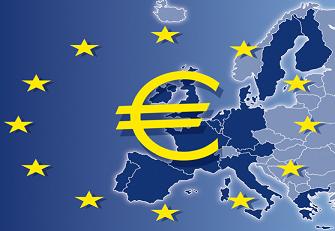Knowledge-intensive production, technological change, shrinking economic space greater openness have also changed the context for Transnational Corporations (TNCs). There are new opportunities and pressures to utilize them. The opening of markets creates new geographical space for TNCs to expand in and access tangible and intangible resources. It also permits wider choice in the methods firms can use (FDI, trade, licensing, subcontracting, franchising, partnering and so on) to operate in different locations. At the same time, advances in information, communication and transportation technologies, as well as in managerial and organizational methods, facilitate the trans-nationalization of many firms, including SMEs. The combination of better access to resources and a better ability to organize production trans-nationally increases the pressure on firms to utilize new opportunities, lest their competitors do so first and gain a competitive advantage. … Read the rest
Global Investment Management
Foreign Direct Investment and the Business Environment
Direct investment abroad is a complex venture. As distinct from trade, licensing or investment, Foreign Direct Investment (FDI) involves a long-term commitment to a business endeavor in a foreign country. It often involves the engagement of considerable assets and resources that need to be coordinated and managed across countries and to satisfy the principle of successful investment, such as sustainable profitability and acceptable risk/profitability ratios. Typically, there are many host country factors involved in deciding where an FDI project should be located and it is often difficult to pinpoint the most decisive factor. However, it is widely agreed that FDI takes place when three sets of determining factors exist simultaneously; the presence of ownership-specific competitive ages in a transnational corporation (TNC), the presence of locational advantages in a host country, and the presence of superior commercial benefits in an intra-firm as against an arm’s-length relationship between investor and recipient.… Read the rest
Trends in Foreign Portfolio Investments
While Foreign Portfolio Investment (FPI) has traditionally been concentrated in developed markets, new interest has been sparked by the so-called “emerging” capital markets. The emerging markets have at least three attractive qualities, two of which are their high average returns and their low correlations with developed markets. Diversification into these markets in expected to give higher expected returns and lower overall volatility.
Many individual investors, as well as portfolio and pension fund managers, are reexamining their basic investment strategies. In the last decade, fund managers realized that significant performance gains could be obtained by diversifying into high-quality global equity markets.… Read the rest
Understanding the Financial Swaps Market
Exchange rate instability and the collapse of the Bretton Woods System and particularly the control over the movement of the capital internationally, paved the way for the origin of the financial swaps market. To day swaps are at the center of the global financial revolution. The growth is such that sometimes it looks like unbelievable but it is true. Though its growth will continue or not is doubtful. Already the shaking has started. In the “plain vanilla” dollar sector, the profits for brokers and market makers, after costs and allocation of risk capital, are measured in fewer than five basis points.… Read the rest
What is Euromarket?
Euro is the currency used by the European Union (EU) countries, so, the market the Euro is used for, can be named Euromarket. It has in view all the transactions done by the banks in Euro currencies, Euro notes, Euro commercial papers, Euro bonds. It is a market that has developed itself in Europe. The market deals with US dollars as well and it can be named Euro dollar market.
Currency is borrowed and lent by institutions located in different countries, there is a capital flow which seems to be uncontrolled. Theoretically, it cannot be a national control over this market.… Read the rest
What is Investment ? – Concept, Definition and Features
Man, it is said, lives on hope. But, hope is only a necessary condition for life, but not sufficient. There are many other materialistic things that he needs – food, clothing, shelter, etc. And, like his hope, his needs too keep changing through his life. To make things more uncertain, his ability to fulfill the needs too changes significantly. When his current ability (current income) to fulfill his needs exceeds his current needs (current expenditure), he saves the excess. The savings may be buried in the backyard, or hidden under a mattress. Or, he may feel that it is better to give up the current possession of these savings for a future larger amount of money that can be used for consumption in future.… Read the rest

